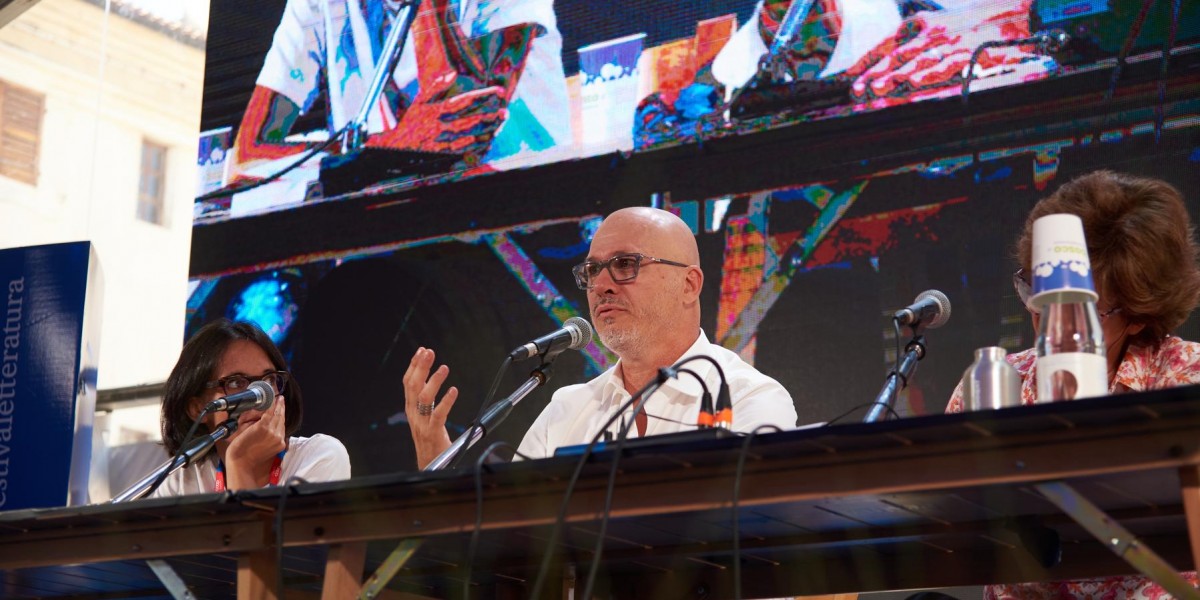
A different perspective on losing one's identity
Two stories in one book. Aleksandar Hemon and Federica Manzon, in Piazza Castello, presented us with Hemon’s newest release: My Parents: An Introduction / This does not Belong To You. The migration crisis in 2014 particularly pushed him to write, deeply disturbed by the common representation of immigrants as faceless masses that cannot bring anything to the West. A refugee himself, Hemon knows that within each person lies a universe containing their past lives which are both real and full. The book unlocked memories of his childhood and allowed him to put them in context. When he and his parents had to leave Yugoslavia he realised how much of his identity relied on others.
Hemon feels that identity is communal and that memories, for example, only gain value when they can be shared with others. If you are the sole holder of your memories they are easily confused with stories and the past quickly becomes unreal. He writes in English (has also written in Bosnian). He is not in exile, he can go back to Bosnia and speak with friends who remain connected to the country. Speaking or writing exclusively in your own country's language, he feels, is an outdated model which leads inevitably to fascism.
There was violence in Hemon's childhood Yugoslavia, and the deeply rooted fascism, patriarchy and sexism contributed to the war strategies which followed. The author talked about Trumpism and how upset he is over the American myth that to be free you need access to violence. Hemon explores the relationship that refugees and specifically his family have with catastrophe. They are always prepared for it. He has a theory that our psyche blocks us from imagining the worst possible outcome, but that as a self-therapeutic method we attempt to prepare for survival even though the actual catastrophe remains unimaginable. We need the courage to realise everything will end. We would have to undo our current life to prepare for the future. Nothing is real until we imagine it's real.



